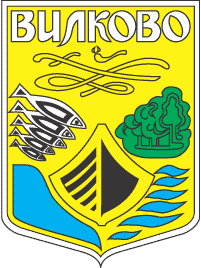“To understand Vilkovo, you need to look into its past: into the boats, canals, faith and character of the people who built the city on the water.”
🏞 18th Century: Founding on the Border
1746 is considered the official year of the founding of Vilkovo. At this time, Old Believers, supporters of the pre-reform Orthodox faith, expelled from Russia after the church schism, moved here.
They chose a hard-to-reach area in the Danube Delta, surrounded by swamps, reeds and water. Here they dug canals, drained plots of land and built houses on piles - this is how the settlement that would later become Vilkovo appeared.
🏡 Interesting fact:
According to one version, the name of the city comes from the word “fork(Vilka)” – like the branching of the Danube into branches.
⚓ 19th Century: Canals, Boats and Trade
In the second half of the 19th century, Vilkovo was actively growing:
- fishing, gardening, and viticulture were developing,
- boat workshops were being built, guest houses for merchants were appearing,
- the population was increasing due to migration from Bessarabia and the coast.

🌍 20th Century: Challenging Times and Changes
Revolutions and wars:
- 1917–1940 — a series of revolutions, changes of power, instability.
- 1940 — Vilkovo becomes part of the Ukrainian SSR, becomes part of the Izmail district.
- 1941–1944 — occupation by Romania and Nazi Germany. Many houses and farms are destroyed, people hide in the delta.

Soviet period
Since the 1950s, large-scale changes have taken place:
- canning and fishing enterprises are built,
- shallow barges and motor boats appear in the canals,
- the canals are partially filled in — part of the water network is lost,
- schools, clubs, and hospitals are opened.
- However, traditions gradually disappear, and religious life is severely limited.

With the proclamation of Ukraine's independence in 1991, the city began to gradually restore its cultural identity:
- Old Believer churches are reopened,
- museums and private estates are created, showing the life of the past,
- tourism is developing: canal walks, fishing, ecological routes.
In 2004, Vilkovo and its surroundings were officially included in the Danube Biosphere Reserve, recognized by UNESCO. This became an important milestone in the development of the eco-direction and international cooperation.
The history of Vilkovo is the history of the struggle for faith, for survival on the water, for the preservation of traditions. Today it is one of the most unique cities in Ukraine, combining:
- rich spiritual and cultural heritage,
- the magnificent nature of the Danube Delta,
- and the hospitality of local residents.
